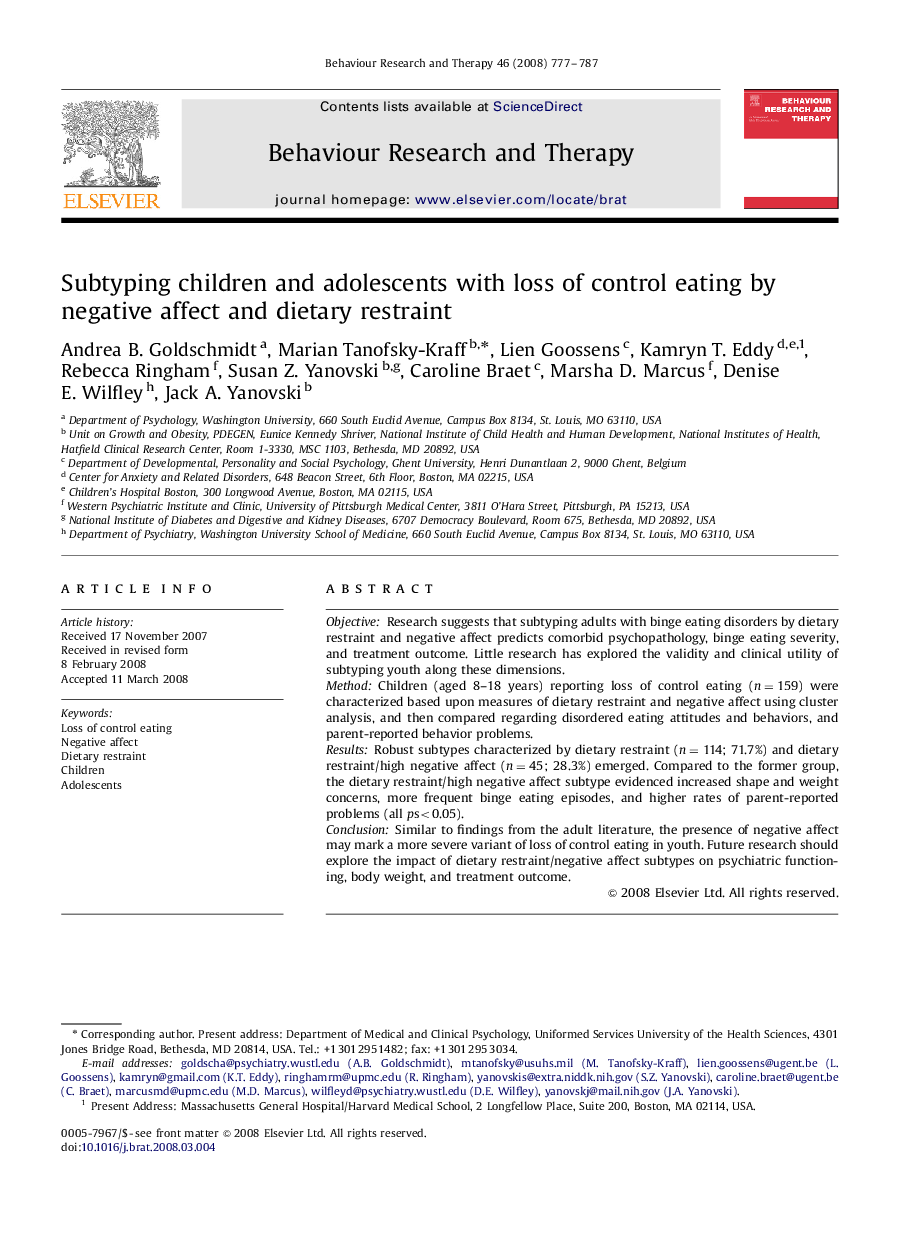| Article ID | Journal | Published Year | Pages | File Type |
|---|---|---|---|---|
| 902276 | Behaviour Research and Therapy | 2008 | 11 Pages |
ObjectiveResearch suggests that subtyping adults with binge eating disorders by dietary restraint and negative affect predicts comorbid psychopathology, binge eating severity, and treatment outcome. Little research has explored the validity and clinical utility of subtyping youth along these dimensions.MethodChildren (aged 8–18 years) reporting loss of control eating (n=159) were characterized based upon measures of dietary restraint and negative affect using cluster analysis, and then compared regarding disordered eating attitudes and behaviors, and parent-reported behavior problems.ResultsRobust subtypes characterized by dietary restraint (n=114; 71.7%) and dietary restraint/high negative affect (n=45; 28.3%) emerged. Compared to the former group, the dietary restraint/high negative affect subtype evidenced increased shape and weight concerns, more frequent binge eating episodes, and higher rates of parent-reported problems (all ps<0.05).ConclusionSimilar to findings from the adult literature, the presence of negative affect may mark a more severe variant of loss of control eating in youth. Future research should explore the impact of dietary restraint/negative affect subtypes on psychiatric functioning, body weight, and treatment outcome.
